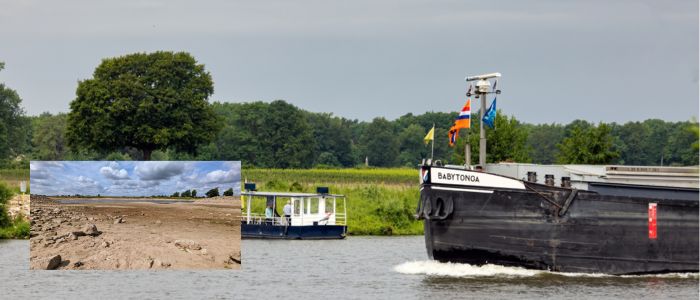
Through March 1, just 103 millimeters of rain had fallen at De Bilt—one of the country’s primary weather stations—making it the second driest ever recorded for the period, exceeded only by the 1996 total.
Accompanied by the absence of rainfall, and now over 1,000 hours of sunshine for the first time in history, and with an average temperature of 12.3°C (the previous records being 11.56°C), 2025 has been an unprecedented year of extreme weather.
Protections are in Place but No Need to Panic
Officials have responded by increasing the target water levels in the IJsselmeer and Markermeer to keep the water flowing, but the national water authority Rijkswaterstaat said consumption of household water is not immediately at risk. Water levels in the Rhine and Maas rivers are set to continue falling into July; however, no official restrictions have been imposed.
Shipping on the rivers was severely affected during a previous major drought, in 2003, with freighters having to cut loads or idle as water levels plunged dangerously low. These two have not reappeared in 2025, but have remained under observation.
Rain in the Forecast, But Heat Will Be Returning Shortly
Food for thought: Based on current trends of rainfall and weather predictions, they say the drought will not exceed 1976's 362.4mm by September 1. Cooler temperatures and rain are more likely towards the end of this week with probable showers and storms on the horizon. Before then, southern areas could see temperatures reach up to 29°C on Wednesday.
And it won’t last long — by Friday, the dry, warm weather will return, and by early next week temperatures in the southeast could again hit 30 degrees. As summer is far from finished, officials are being cautious about the approach to breaking nationwide drought records.









